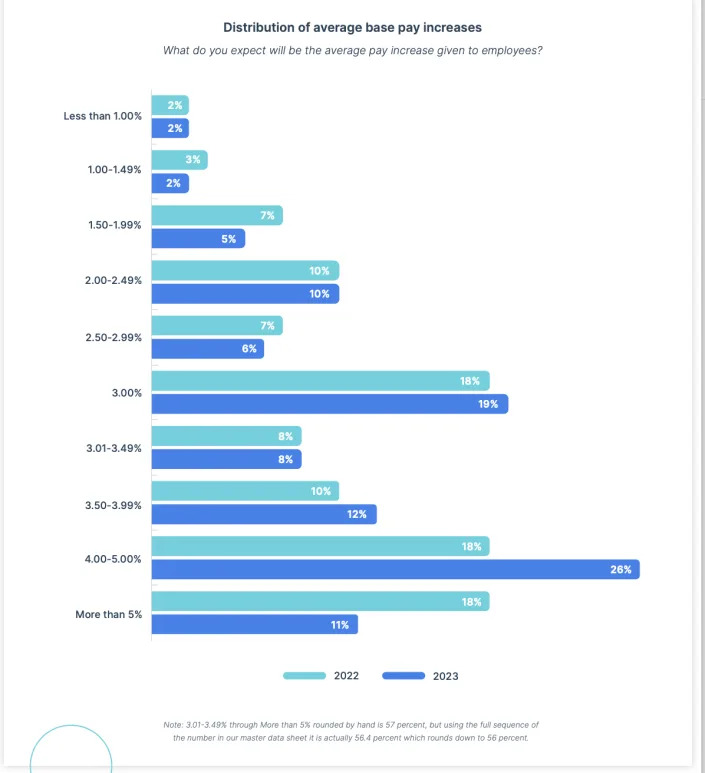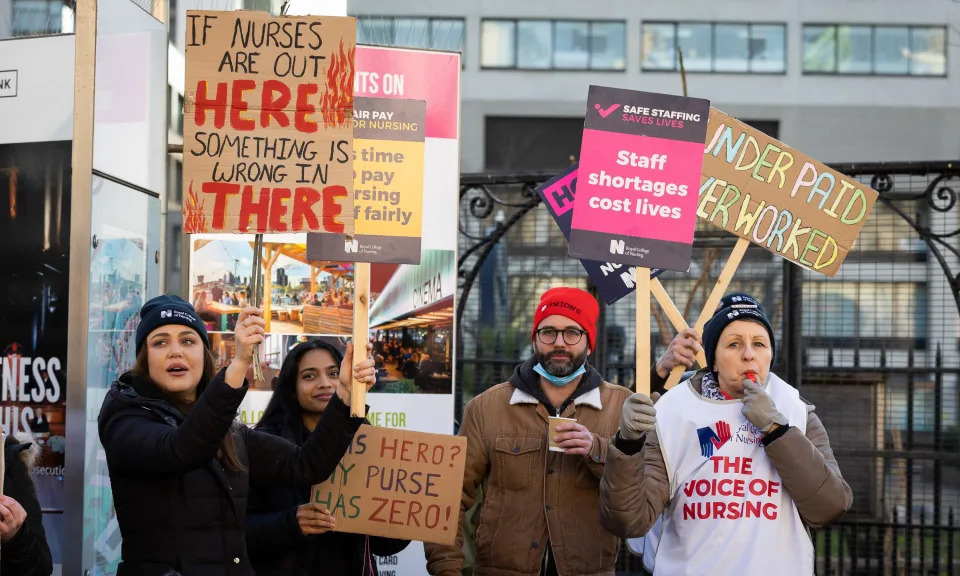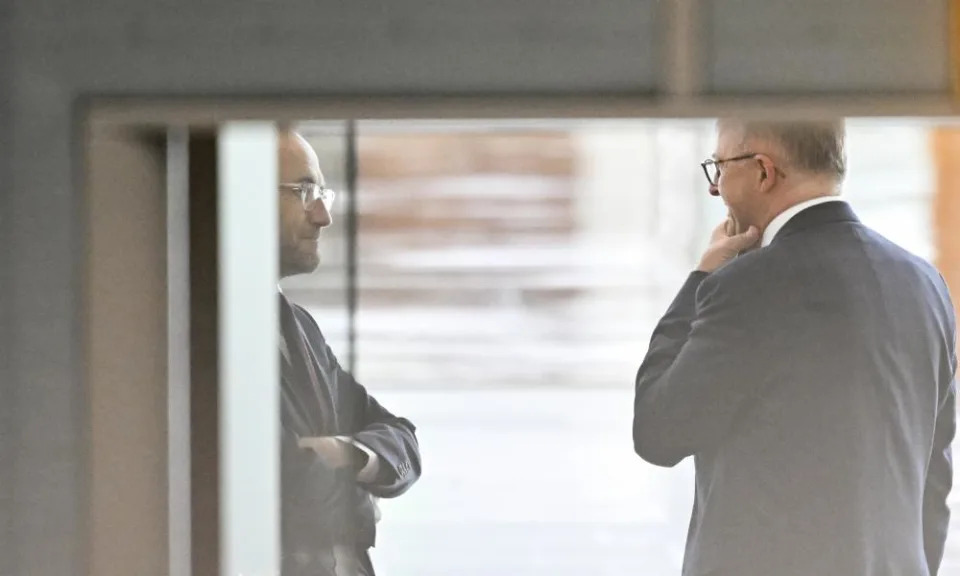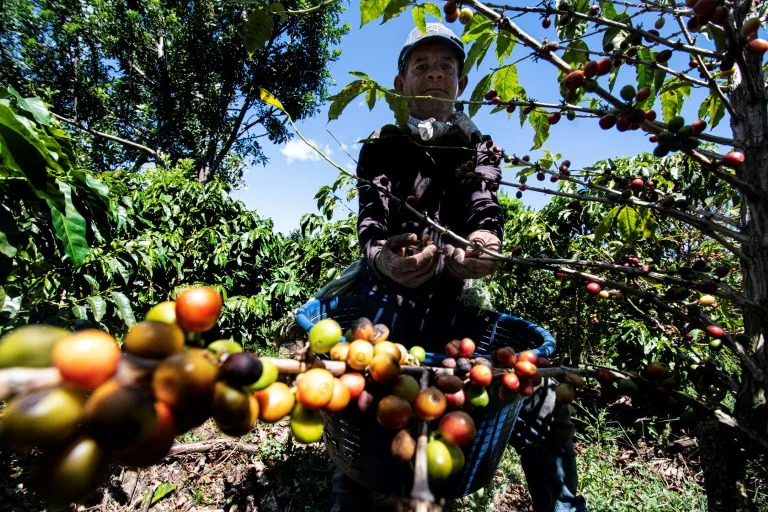What inflation? Many employers will offer less generous pay raises this year.
How U.S. workers can expect to see an average wage increase in 2023
But pay raises have been around 3% for most of the last decade.
Kerry Hannon
·Senior Columnist
Wed, February 22, 2023
Payscale this week came out with its highly anticipated 2023 Compensation Best Practices Report, which turns out to be a mixed bag for employees: smaller raises, maybe semi-annual salary bumps and a dollop of extras to make up for companies’ Scrooge-like behavior.
The bad news for many of us: fewer employers plan to bump up salaries this year.
Only in 8 in 10 organizations said they would offer base pay increases in 2023, down significantly from more than nine in 10 last year, according to Payscale’s new report, conducted between October 2022 and December 2022, of nearly 5,000 employers headquartered in the U.S. (69%), Canada (8%), and Europe, the Middle East and Africa (17%).
A sizable 15% were unsure of whether or not they would pony up for bigger salaries, up from 3% last year.
Fewer employers 'committed' to give base pay raises
That’s a bit surprising after all the handwringing last year about labor shortages and the stress of retaining workers who were more than happy to hit the exits for higher pay and more opportunity at another employer.
“But fewer organizations are committed to give base pay increases,” Amy Stewart, Payscale’s associate director of content and editorial, told Yahoo Finance.
To be sure, six in ten organizations experienced labor shortages and trouble attracting and retaining talent in 2022, according to the report. But that may not be as big of an issue this year. Some evidence: while new postings rose on the job board Indeed last week, they are declining on a month-over-month basis; total postings growth trended slower, said Nick Bunker, an economist at Indeed.
For those of you who work for a firm that does plan to provide annual salary bumps, don’t expect cork popping raises to help offset the current inflation rate of 6.4%. Although more than half (56%) of employers surveyed said raises would be above 3%, the average overall average raise will be lower in 2023 than it was in 2022.
For employers that do sweeten salaries, around one in four plan an increase of between 4% and 5% with 12% reporting tiny bumps of between 3% and 3.99%—and 8% between 3.01 to 3.49%. Last year, 18% of those surveyed reported average pay increases of more than 5%, compared to 11% for 2023.
What happened to the anticipated largest raises since 2007?
Those numbers throw water on the upbeat figures tossed about last fall when employers were in throes of desperation to hold on to workers and attract new ones to the fold. In November, employers were planning to bump up salaries by an average of 4.6% this year — the most since 2007, according to a Willis Tower Watson (WTW) survey of 1,550 U.S. companies.
But even that optimistic forecast was probably not going to be enough to keep workers content. A separate study from SHRM Research Institute found that most of the 1,500 HR professionals surveyed said it would take 8% to 10% pay raises to retain workers.
The muddled expectations spotlight the relentless dueling between employers and employees that started when the labor market emerged from the pandemic in 2021.
Fewer workers are expected to jump ship this year than last, according to the Payscale report; the turnover rate is still expected to be around 25%, down from 36%. (More than a third of organizations cite compensation as most to blame for workers choosing to quit.) And that looks to be the picture into 2023, Stewart said. But hopefully for employers, the rate will continue to decline.

Source: Payscale’s 2023 Compensation Best Practices Report,
Workers still have bargaining chips
It’s perplexing that employers aren’t taking the time to read the tea leaves when it comes to hiring workers who can get the job done. “Although we may enter a recession in 2023, attracting and retaining talent looks like it will remain a top challenge for organizations,” Stewart said. “Compensation and pay progression are key factors in the employee experience and will take center stage in 2023.”
The good news: Often, organizations discover that annual pay increases are too infrequent to retain talent, especially if they miscalculated what employees expect around performance reviews, she said. As a result, the number of organizations that give formal pay increases twice annually has increased from from 4% in 2022 to 11% this year, according to Payscale data.
Moreover, roughly one in four of employers surveyed plan to offer bonuses to ease the impact of rising costs.
Other benefits to winnow the gap between rising costs and compensation are also on the rise. The Payscale research found small increases in mental health or wellness programs, paid sabbaticals, and extended family leave. Employers also reported an upswing in help with student loan repayments, financial/debt services, travel benefits, and the four-day workweek.

More than half of employers ask job candidates how much they made in their last position, according to the new Payscale report. (Getty Creative)
What did you make in your last job?
And for those jobseekers out there, beware. Less than half ( 42%) of organizations refrain from asking applicants to disclose their current salary, or most recent one, according to the data.
That’s deeply troubling. In particular, it puts women and racial minorities who already grapple with a pay gap in an uncomfortable negotiating position.
Over half of U.S. states and many countries have passed salary history bans forbidding employers from asking this question, according to Payscale research. That said, a number of employers (11%) persist in the practice of asking prospective employees about their salary history, even where it may be illegal.
That takes chutzpah.
The Yahoo Finance Take: Money matters. Keeping pay apace with cost of living is crucial and, the truth is skilled workers will still be in hot demand this year.
Kerry is a Senior Reporter and Columnist at Yahoo Finance. Follow her on Twitter @kerryhannon.
Pictured: Banksy artworks in Ukraine protected by shockproof glass
Jessica Carpani
Wed, 22 February 2023

One of the works by Bansky features a gymnast performing the ribbon routine in Irpin - Thibault Camus
Paintings on the ruins of Ukrainian buildings by British graffiti artist Banksy have received new protections.
The artworks have been covered by shockproof glass, in the hope that they will survive any further damage brought on by Russia's bombardments.
The artist is believed to have painted the murals, including in Borodyanka, just outside Kyiv, in November last year.

Shockproof walls protect Banksy's boy defeating an adult man in judo sparring in Borodianka - Ukrinform/Shutterstock

An artwork made by British street artist Banksy is seen at the bottom of a destroyed building in Horenka, near Kyiv - Thibault Camus

A protective glass case seals the art piece that depicts a gymnast performing the ribbon routine on the wall of the apartment building affected by the shelling of Russian troops, Irpin, Kyiv - AKGS
Borodyanka was heavily damaged during Russia's attempt to capture the capital in February, when it was subjected to air strikes and artillery shelling. With the area blockaded, civilians faced starvation until Ukrainian forces recaptured the area in April.
Four murals in his signature style were spotted in total on damaged buildings in and around Kyiv, including one depicting a gymnast doing a handstand amid debris.
UK Ministers could offer one-off payments as way to end public sector strikes
Jessica Elgot, Denis Campbell, Heather Stewart, Pippa Crerar and Richard Adams
Wed, 22 February 2023

Ministers have been given the freedom to talk to unions about pay settlements that could include backdated or one-off payments as ways to end the escalating series of public sector strikes.
But Downing Street said it was critical unions agreed to call off planned industrial action before talks could begin, as the Royal College of Nursing (RCN) did on Tuesday.
It is understood that the Cabinet Office has given guidance to secretaries of state about the new parameters within which they can negotiate. They underline the expectation that new efficiency reforms will be announced in return for pay deals and the pre-condition that planned strike action must be cancelled for intensive negotiations to commence.
However, the Treasury has said any pay increases above the 3.5% maximum planned for 2023-24 must be funded from existing budgets, which could force departments to find billions in savings.
For example, if NHS staff do receive a 5% uplift next year, the Department of Health and Social Care (DHSC) and NHS England could have to find about £1.8bn from their budgets to bridge the gap between that amount and the 3.5% the government said on Tuesday was all it could afford.
“It is up to secretaries of state how that works in practice,” one Whitehall source said. “But categorically, pay awards will be from existing departmental budgets. That has not changed.” Asked if that restriction came with potential cost for tackling the NHS backlog, the source said it was important that broader efficiencies were part of the final package.
The health secretary, Steve Barclay, is understood to be prepared to discuss backdating next year’s pay settlement, which would be a way of meeting the red line for all 12 health unions that pay for this year must be on the table – without reopening the full settlement.
A DHSC source rejected the GMB union’s claim that Barclay is trying to “divide and rule” the health unions by holding “intensive” pay talks with only the RCN. The source stressed that the RCN had shown “huge amount of goodwill” in backchannels and conversations with officials, and that calling off planned action was crucial to entering the intensive talks.
Barclay and RCN officials on Wednesday began discussing a number of options for improving nurses’ pay both this year and in 2023-24. They are thought to include both consolidated and also non-consolidated pay rises, a strategy which the Labour government in Wales is using as part of its efforts to reach a settlement with NHS unions there.
As well as pay, the talks will examine ways to lift administrative burdens on nurses and ways to reduce agency costs, as well as non-pay issues raised by unions including flexible working. Talks are expected to be ongoing over the coming days.
No 10 has made it a red line that the intensive phase of talks can only begin when strike action is called off.
“Strike action is very disruptive and there needs to be a lot of focus from all departments on contingency planning if they’re going ahead, which means it makes it more difficult to have these sort of detailed negotiations. It means being in a good constructive place,” one official said.
However, the National Education Union has said it will not pause planned industrial action next week until it has a clear indication of what is on offer from the government. Downing Street said the offer of talks would only stand once that had been called off.
“We’re obviously disappointed given I think the NEU and many other unions have wanted to talk about pay and have wanted to have these discussions for some time,” Rishi Sunak’s official spokesperson said. “The discussions and the talks are on the basis that they do stop strike action – there will be no talks, obviously, if they do not take that step.”
Leaders of teaching unions including the NEU say the education secretary, Gillian Keegan, has failed to offer any movement on pay, with several characterising the talks to date as “polite discussions”, and one describing them as “meandering”.
Paul Whiteman, the general secretary of the National Association of Head Teachers, said Keegan was making matters worse by insisting that strikes first be ruled out, adding: “After a series of meaningless encounters, the secretary of state holds out a public olive branch with thorns attached that make it impossible to grab.”
The NEU’s leaders said the union’s executive could call off next week’s regional strikes in England if the government makes a “serious proposal” by Saturday. “As things stand, however, no such offer has been made and the strikes remain in place,” the union said.
Sunak himself is understood to be taking a keen interest in the detail of the reforms that are possible, particularly in the NHS, which can free up frontline health workers from bureaucratic burdens.
“He is getting into the detail, he wants to fix those problems,” one senior official said. “Over the spring we want to see these issues being worked through and fixed. I think there is a realisation that we must demonstrate he is a prime minister fixing problems and improving long-term issues. Then we get breathing space to talk about long-term ambitions.”
Scottish oil services giant rejects takeover bid approaches
Ian McConnell
Wed, 22 February 2023

Wood has rejected the bid approaches
Aberdeen-based energy services group Wood has tonight revealed it rejected unsolicited bid approaches from private equity player Apollo Global Management.
Wood said its board had "engaged on a limited basis" with Apollo, before rejecting the proposals.
It made the announcement after the stock market had closed.
READ MORE: Think Nicola Sturgeon has been bad for business? Think again
The company told the London Stock Exchange: "The board of Wood notes the recent speculation and confirms that it has received three unsolicited, preliminary and conditional proposals from Apollo Global Management Inc, regarding a possible cash offer to acquire the entire issued and to be issued ordinary share capital of Wood.
READ MORE: Ian McConnell: Yes Minister doesn't have look-in as off-script Brexit stride is short
"The most recent approach was received on 26 January 2023 and proposed a cash offer to acquire the entire issued and to be issued ordinary share capital of Wood at a price of 230 pence per Wood share...The board carefully considered each of the proposals, together with its financial advisers, and has engaged on a limited basis with Apollo. The board unanimously rejected each of the proposals, having concluded that they each significantly undervalued the repositioned group's prospects."
READ MORE: Brexit: Lack of hope down to politicians as people wake up
Shares in Wood had finished 3.7p higher on the session at 154.7p.
Wood said: "Any offer for Wood is governed by the Code (The City Code on Takeovers and Mergers). Under Rule 2.6(a) of the Code, Apollo must, by not later than 5.00pm on 22 March 2023, either announce a firm intention to make an offer for Wood in accordance with Rule 2.7 of the Code or announce that it does not intend to make an offer, in which case the announcement will be treated as a statement to which Rule 2.8 of the Code applies. This deadline can be extended with the consent of the Panel (the Takeover Panel) in accordance with Rule 2.6(c) of the Code."
Unseen photo of JFK assassination found hidden in Texas thift store
Bevan Hurley
Wed, 22 February 2023
A previously unpublished photograph of John F Kennedy’s motorcade snapped minutes before his assassination in Dallas in 1963 has been unearthed in a Texas second hand store.
George Rebeles made the extraordinary discovery inside a used Bachman Turner Overdrive compact disc case that he bought at the Souls Harbor Thrift Store in the city of Ferris, according to local news site WFAA.
Mr Rebeles told WFAA he opened the case about a month after making the purchase, and was stunned to see the black and white Polaroid photo with the date of 11-22-63 handwritten on the back.
“How this could have ended up in a small town thrift store, fascinates me,” Mr Rebeles told the ABC affiliate.
JFK historian Farris Rookstool told WFAA that the photo appeared to have been taken as the presidential motorcade left Love Field Airport.
According to the JFK Library, the president and wife Jackie Kennedy Onassis arrived at Love Field at 11.38am after taking a short flight from Fort Worth on the morning of 22 November 1963.

A photo taken on the day of John F Kennedy’s assassination in Dallas in 1963 has been unearthed in a Texas thrift store (WFAA)
The president’s limousine left the airport for the 10 mile ride into downtown Dallas, where he was shot at Dealey Plaza at around 12.30pm. The Warren Commission would later rule that Lee Harvey Oswald was solely responsible for JFK’s murder.
However, questions and conspiracies have continued to swirl around the assassination, and investigators continue to push for the government to release all of its classified files.
The National Archives and Records Administration released more than 13,000 documents about the assassination in December,
Mr Rookstool told the news site that the photo would make a nice family heirloom, but was unlikely to be very valuable.

President Kennedy’s motorcade travelling through Dallas on 22 November 1963
Its new owner said he was yet to decide if he would try to sell the photograph, and that he was more interested in figuring out how it would up in a thrift store in Ferris.
Mr Rebeles told WFAA his discovery had added another perplexing chapter to the enduring mystery of JFK’s death.
“I’m not a huge conspiracy nut or anything like that, but sometimes things don’t quite add up,” he said.
Almost 40% of time spent on chores could be automated within 10 years, study finds
Eleanor Noyce
Wed, 22 February 2023

A conceptual image of a generic, blue and white robot holding a vacuum cleaner doing household cleaning chores in bedroom, viewed from a low angle through an open doorway (Getty Images)
39% of time spent on chores – or four out of 10 hours - could be automated within 10 years, a new study has found.
Amongst the household tasks analysed, time dedicated to grocery shopping was listed as the most automatable, with ironing, washing up and cooking also featuring.
The study, conducted by the University of Oxford and Japan’s Ochanomizu University, further found that 28% of care work is predicted to be automated in the future. It estimates that time spent in this area could fall by almost 60%, with an increasing proportion of time freed up for leisure activities.
However, the research finds that childcare would only reduce by 21%. Past findings suggest that working-age people in the UK, on the whole, spend nearly 50% of their time on unpaid domestic tasks such as cooking, cleaning and care.
Meanwhile, experts suggest that working-age men dedicate around half as much time on unpaid domestic work than their female counterparts, suggesting that these not-so-distant household automations could benefit women significantly.
Dr Lulu Shi, a postdoctoral researcher with the Oxford Internet Institute, said: “Our research suggests, on average, around 39% of our time spent on domestic work can be automated in the next 10 years.
“The degree of automation varies substantially across different types of work. However, only 28% of care work, including activities such as teaching your child, accompanying your child, or taking care of an older family member, is predicted to be automated.
“Yet 44% of housework, including cooking, cleaning, and shopping, are expected to be automatable.”
Elsewhere, the study notes differences in the expectations of domestic labour between male and female experts, referencing varying life experiences.
“We found male and female experts had different expectations about automation of domestic work, potentially reflecting the differences in their lived experiences with technology as well as their involvement in housework and care work”, said Ekaterina Hertog, associate professor in AI and Society, Oxford Internet Institute and Ethics in AI Institute.
The study also finds that the general level of optimism with regard to domestic automation varies by country, with UK-based experts believing that it could reduce domestic work time by 42%.
Amongst Japanese respondents, the figure was 36%, with these conclusions attributed towards a belief that technology generally equates to labour replacement in the UK. In Japan, new smart technologies are expected to work alongside humans rather than act as their replacements.
The study, published in Plos One, involved 29 male and female AI experts from the UK and 36 experts from Japan, asked to estimate the degree to which 17 household and care tasks might be impacted by automation over the coming decade.


AUSTRALIA
Labor won’t block new fossil fuel developments. Here are some options for a climate deal
Adam Morton
Wed, 22 February 2023

Photograph: Lukas Coch/AAP
The long-running fractures that define Australian climate politics can do weird things to people who have been involved in it too long.
One observer with more experience than most had a moment of reverie this week, joking about a fantasy universe in which Labor, the Coalition and the Greens all made substantial compromises to transform the landscape, literally and figuratively.
In his dream world, new fossil fuel developments were immediately banned, nuclear energy was legalised and supported, and the safeguard mechanism revamped with tri-partisan support. Everyone got what they wanted at the price of something they didn’t. Gigantic likenesses of the parties’ three celebrated Bobs – Hawke, Menzies and Brown – were carved side-by-side into a mountain to celebrate the shock outbreak of political harmony.
Back here in the real world, there is no Three Bob Mountain, divisions are deep and compromise, when it happens, is painstaking.
Related: Safeguard mechanism: what is it, will it cut emissions and what role do carbon offsets play?
The safeguard mechanism – a failed Coalition policy that the Albanese government has promised to reboot into something meaningful – is being asked to carry the weight of Australia’s long-running failure to introduce meaningful and durable policies to cut greenhouse gas emissions.
That’s a problem, because the safeguard is highly complicated and has design issues that could stop it driving deep and genuine emissions cuts.
With the Coalition having opted out of an adult discussion about how industrial polluters should respond to the climate crisis, tough decisions lie ahead for Labor, the Greens and independents on what they are each willing to accept, and whether they will draw red lines that could lead to them walking away with nothing.
What is the safeguard mechanism?
The safeguard mechanism was introduced by the Coalition in 2016. It was promised to put a limit on greenhouse gas emissions from about 200 major industrial facilities.
It applies to facilities that emit more than 100,000 tonnes of carbon dioxide equivalent a year. Each facility is set an emissions limit, known as a baseline.
The Coalition said companies that emitted above their baseline would have to buy carbon offsets or pay a penalty. In practice, facilities were allowed to change their baselines, few were penalised and industrial emissions continued to increase.
Labor plans to revamp the scheme.
It would set new baselines based on emissions intensity - how much a facility releases per unit of production. Baselines will be reduced by 4.9% a year.
Companies could choose whether to make onsite emissions cuts or buy Australian carbon credit units.
New polluting facilities, including gas and coal mines, could open and would be set baselines at “international best practice”.
Companies that emit less pollution than their baseline allows would be awarded a new type of “safeguard credit”. These within-scheme credits could be sold to other polluting facilities that emit more than their baseline and need offsets.
Labor wants the changes to start on 1 July 2023.
The point of this piece is not to say where those red lines should be drawn, or to predict what will happen. But it is worth considering what a deal might involve if one is reached.
The Greens’ leader, Adam Bandt, has offered to set aside other concerns about the safeguard if the government agrees to not approve any more new coal and gas mines. The minor party had been expected to present a more technical pitch, but instead kept its message simple: how about we just stop the expansion of the thing that causes the climate crisis?
There was an element of cheek in this. Bandt knew the government would not agree. The prime minister said so before the election and several times since. Asked on Sky News last week if she would say yes to some coal and gas developments, the environment minister, Tanya Plibersek, replied: “Yeah, of course.” The next day her department approved a 116-well expansion of a Santos coal seam gas development in Queensland’s Surat Basin.
Related: Australia can’t blow another decade of climate action – it’s now up to Labor and the Greens | Katharine Murphy
They have copped a wave of criticism, but there is evidence the Greens’ campaign to try to make all climate debates about new coal and gas developments is not only evidence-based, it has been tactically smart. It avoids a fight over putting people out of work – projects that haven’t begun don’t employ people – and the focus has thrust the issue of new fossil fuels – and their vast uncounted emissions when Australian coal and gas is burned overseas – to the centre of political debate. It points to where the climate battleground will be at the next federal election.
But a deal that blocks new coal and gas is not going to happen, whatever its merits. So what could be agreed?
One option could be a short-term pause on approving new developments until changes to national environmental law – the Environment Protection and Biodiversity Conservation (EPBC) Act – are dealt with over the next year.
This would sharpen the focus on whether the reformed EPBC Act should finally, belatedly, include a “climate trigger” – a requirement that CO2 emissions are considered when developments are assessed. It could be done in a number of ways, from requiring that the impact of big polluting projects be considered, to an outright ban on developments that emit above a certain level.
Senior figures from both major parties have supported a climate trigger in the past. They include Anthony Albanese, who unsuccessfully introduced a climate trigger bill while opposition environment spokesman in 2005. Labor would not be breaking a pledge if it supported one now – it made no promise either way before the election.
Related: Fossil fuel companies won’t save us from climate change. We need governments to step up | Adam Morton
A second option is a concerted crackdown on fossil methane emissions, which are released during gas and coal extraction. Methane is a short-lived but highly potent greenhouse gas, responsible for about a third of global heating. Satellite evidence suggests Australian mines may leak substantially more of it than federal government accounts suggest. Technology is available that can significantly reduce it.
A more radical but admittedly less likely possibility could be to redesign the policy so that fossil fuels are treated differently to other industries under the safeguard, such as steelmaking, aluminium smelting and cement production, which all parties agree should have a future and will need help to clean up. There is a good case the two groups should not be shoehorned into the same scheme, given their vastly different future trajectories.
There is also the contentious issue of carbon offsets, which allow companies to pay for forest regeneration and other projects rather than cut their direct emissions.
Carbon offsets are used by the government and polluting companies as an alternative to cutting carbon dioxide emissions.
Instead of reducing their own pollution, they can choose to buy offsets - known as Australian carbon credit units (ACCUs) - that are meant to represent a reduction in emissions elsewhere.
Each carbon credit represents one tonne of carbon dioxide that has either been stopped from going in the atmosphere, or sucked out of it.
Methods approved to generate carbon credits in Australia include regenerating native forest that has been cleared, protecting a forest that would otherwise have been cleared (known as “avoided deforestation”) and capturing and using emissions that leak from landfill sites to generate electricity.
Credits were bought by the government through the $4.5bn taxpayer-funded emissions reduction scheme or, increasingly, by polluters on the private market.
Credible criticisms of the integrity of the offset scheme have not been thoroughly addressed. The climate change minister, Chris Bowen, says he is confident there will be substantial cuts onsite at polluting facilities, but has also proposed allowing companies to buy an unlimited number of offsets. Independent senator David Pocock has flagged he wants some checks introduced and the Greens have also raised concerns.
None of these paths would address all concerns raised about the safeguard mechanism. Some of them are probably as likely as Three Bob Mountain suddenly appearing on the horizon.
But they are potential starting points, which is where we are at.
UK
Scrapping EU laws will undermine Parliament, say legal analysts
Danny Halpin, PA Environment Correspondent
Wed, 22 February 2023 at 5:01 pm GMT-7·3-min read
The Government’s controversial plan to scrap EU laws by the end of the year undermines parliamentary sovereignty, according to legal analysts.
If passed, the Retained EU Law (Revocation and Reform) Bill would see around 4,000 laws reviewed and left to expire unless their retention is approved by ministers.
Critics of the Bill, which is to go before the House of Lords on Thursday, say it is undemocratic and gives too much power to ministers.
Environmental groups in particular are worried it will remove key protections for nature and food safety.
The National Farmers’ Union (NFU) said on Wednesday that its members support reviewing EU laws but do not want to see the process rushed through in less than a year.
A Government spokesperson said the Bill will remove “burdensome” EU law and will not compromise environmental standards.
In a new legal analysis commissioned by ClientEarth, the RSPB and WWF-UK, lawyers Sir Jeffrey Jowell KC and Jack Williams dismissed claims that the Bill would promote parliamentary supremacy as “blatantly hollow”.
They said the Bill would undermine Parliament’s sovereignty by transferring its law-making powers to individual ministers and this would be “virtually free” from scrutiny by the electorate and other members of Parliament.
In its current form, they said, the Bill would threaten the UK’s international obligations on environmental standards and violate the rule of law by making it “impossible” to predict which laws would be kept or removed.
ClientEarth lawyer Angus Eames said: “The threat the Retained EU Law Bill poses cannot be overstated. If passed, it could maim efforts to address the climate and biodiversity crises, put the health of millions at risk and subvert the function of the UK’s political system.
“Decisions on the health of our environment, the safety of our food and our longstanding protections as consumers cannot be left in the hands of current and future ministers without the input and oversight of Parliament – and this legal analysis makes that painfully clear.
“This Bill would fundamentally undermine how democracy functions in the UK – which is why we are calling for the Bill to be dropped entirely.”
Farming minister Mark Spencer said at the NFU conference on Tuesday that no important environmental laws will be allowed to inadvertently expire and claimed civil servants will review every piece of legislation.

Farming minister Mark Spencer said EU laws will go into three ‘buckets’ – scrap, keep or improve (Jonathan Brady/PA)
The Government spokesperson said: “The Retained EU Law Bill will enable us to amend or remove burdensome retained EU law and ensure we can create the best regulatory environment in the UK to drive economic growth, boost innovation and develop a competitive advantage in future technology.
“We are committed to working collaboratively with Parliament to deliver this programme of work. That’s why we have ensured this Bill contains robust scrutiny mechanisms that will enable the appropriate scrutiny of any amendments or repeals of retained EU law.
“Any reforms will not come at the expense of the UK’s already high environmental standards, and ministers have been clear that we will maintain our international obligations.”
Beccy Speight, chief executive of the RSPB, said: “In leaving the EU we were promised that we would now be free to replace continent-spanning legislation with laws and regulations that would recognise the specific needs of the UK.
“If done well this could be a real opportunity to tackle the nature and climate emergency and fulfil our international commitments to protecting and restoring nature.
“However, with at least 1,800 pieces of legislation relating to the environment alone, the scale of this task becomes apparent.
“We do not know what will replace the EU legislation, but if the Government remains committed to their 2023 deadline, there are clearly important questions to be asked about a path that can only be described as unconstitutional.”
Coffee harvest plunges amid Central American exodus
Noe Leiva with Alberto Pena in San Jose
Wed, 22 February 2023

Nestled in the mountains of central Honduras, the "El Encanto" coffee farm is tackling this year's harvest with half the pickers it needs.
In Costa Rica's Central Valley, the "Hersaca Tres Marias" farm faces a similar dilemma. The seasonal laborers both rely on are among the thousands to have abandoned Central American shores in search of a better life elsewhere.
"Many of our coffee pickers now go to the United States, to other countries, for a lack of opportunities" at home, farmer Selvin Marquez, 34, told AFP in Siguatepeque, some 90 kilometers (56 miles) north of the Honduran capital Tegucigalpa.
Coffee growers like Marquez are at their wit's end, watching the fruit of their labors, and their incomes, shrivel up.
Marquez planted five hectares of coffee that now needs harvesting. But he has only 20 of the 40 pickers he needs.
One of them is Jose Samuel Hernandez, 34, in the fields with his wife Esly Mejia, 24, daughter Alexa, two, and sister-in-law Gleny, 20.
Every hand counts, and even Alexa helps pick some of the low-hanging fruit while playing with a dusty teddy bear.
The family cuts 182 kilograms (402 pounds) in eight hours and receives the equivalent of $0.10 per kilo.
An "insufficient" income, said Hernandez, whose basic monthly expenses are the equivalent of $567 a month.
But he has little choice. A security guard for the rest of the year, a job at which he earns $429 per month, he took the day off to join his family coffee picking.
Hernandez said many of his friends have left Honduras. He, too, has thought of packing up. "But what will happen to my family?"
- Fleeing poverty -
The authorities in Honduras estimate that 1,000 of its 9.5 million citizens leave every day with the hopes of making it to the United States for a chance at the "American dream."
They seek to escape rampant poverty and violence in one of the world's top ten coffee producing countries.
Some 250,000 hectares of coffee plantations are shared between more than 100,000 mainly small-scale producers.
The industry generates a million jobs and accounts for about 38 percent of Honduras' agricultural GDP, according to the Honduran Institute of Coffee.
In the 2021/22 season, the country exported coffee worth some $1.4 billion.
Costa Rica, too, is a major producer, and similarly affected by emigration. But here the problem is slightly different.
The comparatively stable country relies heavily on hired hands from neighboring Nicaragua for its coffee picking.
But since a clampdown on critics and the opposition following 2018 protests that were violently put down, more and more Nicaraguans are leaving for shores further afield.
Managua does not provide emigration data, but more than 164,000 Nicaraguans were intercepted at the US border in the 2022 fiscal year -- a three-fold increase in 12 months, according to American customs authorities.
- 'They have left' -
Nicolas Torres, 70, is one of the shrinking number of Nicaraguan laborers to have returned this year to the farm Hersaca Tres Marias in the region of Birri, some 37 kilometers north of the capital San Jose.
With his deeply tanned hands, he caresses the grains.
"I grew up in coffee," he told AFP, picking non-stop. "This is one of the good jobs I have always done."
Torres laments that in his own country, finding work is difficult and "a lot of pressure in the country... makes us emigrate."
Costa Rica boasts some 94,000 hectares of coffee plantations that employ about 25,000 pickers every season -- mostly Nicaraguans but also Panamanians and locals, according to Bilbia Gonzalez of the country's Coffee Institute.
The pickers earn about $0.15 per kilo.
Migrant workers from Nicaragua, a country of nearly seven million people, are "extremely important" for Costa Rica, which exported $337.8 million dollars in coffee in 2021/22, said Gonzalez.
Yet, "there are few Nicaraguans" to do the work, added Geovanny Montero, manager at Hersaca Tres Marias. "They have left for the United States."
Last year, the farm hosted 70 pickers, said Montero. This year, there are 50 -- a reduction he calculates will result in a five percent smaller harvest.
"That is a lot of money," Montero lamented as he pointed to fallen coffee fruit on the ground.
nl-apg/fj/mlr/st
Tunisia detains prominent dissidents amid growing crackdown
NEWS WIRES
Wed, 22 February 2023

© Imed Haddad, AFP
Tunisian police detained two prominent dissidents and surrounded the home of a third on Wednesday, part of an escalating crackdown on critics of President Kais Saied, who has labelled his opponents traitors and criminals.
The arrests, along with others this month, have targeted some of Saied's most important critics along with other politicians, judges and media figures.
Issam Chebbi, head of the Republican Party, was detained near a shopping centre while he was out with his wife, his family and lawyers told Reuters. Police later searched his home.
Chaima Issa, an activist who took part in the 2011 revolution, was detained after police surrounded her in her car, her lawyer Samir Dilou said.
Police also surrounded the house of Jawher Ben Mbarek to detain him, but the constitutional law professor was not there, his sister and lawyers said.
Speaking in a video published online on Wednesday, Saied attacked the National Salvation Front opposition coalition in which Ben Mbarek and Issa were leaders, along with Chebbi's brother.
He called it "a paid campaign", adding that "Tunisia wants to get rid of these criminals".
Saied shut down the elected parliament in 2021 and seized most powers, moving to rule by decree and writing a new constitution that he passed in a referendum with low turnout last year, actions his foes call a coup.
The president has said the moves were legal and necessary to save Tunisia from chaos, repeatedly calling his critics traitors and enemies of the state.
(REUTERS)

















